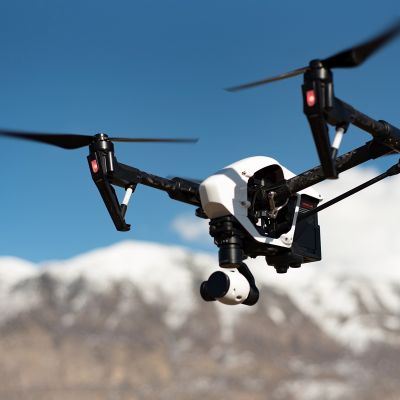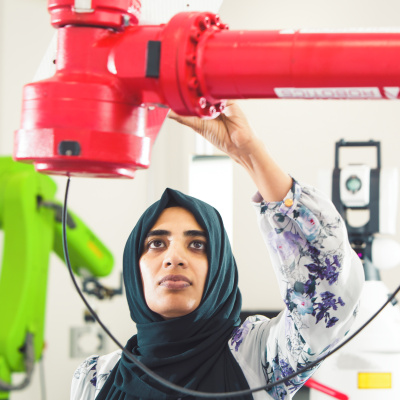Researchers at Cranfield and Lancaster University are leading a new research node to assess the fundamental security principles of autonomous systems along with the security of the users and environments in which such systems are expected to operate.
The Trustworthy Autonomous Systems node in Security (TAS-S) – a £3.7 million project, funded by UK Research and Innovation (UKRI) and industry contributions – will look into key issues surrounding security as autonomous technologies are increasingly used in a diverse range of applications.
Autonomous systems can work with varying levels of human interaction, including completely unsupervised, and encompass autonomous cyberphysical systems (computer systems controlled or monitored by computer-based algorithms), driverless vehicles, drones for delivery, robots operating in hazardous environments for search and rescue, and nano-bots for assistive surgery.
The research group will examine the fundamentals of adaptive security for mission-oriented autonomous systems to address the challenge of developing secure machine-machine and human-machine interactions.
Leading the Cranfield research, Weisi Guo, Professor of Human Machine Intelligence in the Centre for Autonomous and Cyber-Physical Systems, said: “We are delighted to have been awarded the UKRI security node in trustworthy autonomous systems along with our co-leads at Lancaster University. We very much see these technologies as the next big enablers for a safer society and they lay the foundation to improve trust between human operators and autonomous machines. Our combined team is uniquely positioned to develop a game-changing approach to the security of networked autonomous systems in dynamic mission environments.”
Professor Neeraj Suri, co-director of Lancaster University’s Security Institute, said: “Security solutions are not just about technology in autonomous systems. For security to be effective, it often needs to address both technical and sociological elements. It is exciting that our distinctive security expertise, along with the Cranfield team, well-known for its air-ground autonomous systems research, will collectively provide the critical mass to help significantly advance the science of practically usable security.”
At Cranfield, Professor Antonios Tsourdos, Head of the Centre for Autonomous and Cyber-Physical Systems, will lead research in secure mission adaptation, and Gokhan Inalhan, BAE Systems Chair and Professor of Autonomous Systems and Artificial Intelligence, is leading secure control theory research. Physical science research is also being complemented by social science research in secure human behaviour adaptation to increased autonomy by Dr Lisa Dorn, Associate Professor of Driver Behaviour in the Centre for Structures, Assembly and Intelligent Automation.
Professor Gokhan Inalhan said: “This UKRI TAS-S node will not only provide an excellent opportunity to showcase our research on learning-enabled AI and connected autonomy, but it will also create a platform for people from academia, industry and government agencies to cultivate and streamline secure control, communication, and navigation technologies – contributing towards a trustworthy autonomous systems future in the UK.”
Unique research environments at Cranfield for investigating and developing air and ground autonomous systems will be used by the research node, including the Multi-User Environment for Autonomous Vehicle Innovation (MUEAVI) – a ‘smart’ road test environment, the first of its kind in the UK, built alongside a research airport within the controlled setting of a University campus – Cranfield’s fully operational airport and digital control tower, and the National Beyond visual line of site Experimentation Corridor (NBEC), a safe, managed environment for drone and unmanned aircraft experimentation. The new £65 million Digital Aviation Research and Technology Centre (DARTeC) will also host part of the joint digital security research and enables the development of a variety of real-world platforms with industrial partners. The TAS-S node is part of the UKRI Trustworthy Autonomous Systems (TAS) programme, funded through the UKRI Strategic Priorities Fund and delivered by the Engineering and Physical Sciences Research Council (EPSRC). The TAS programme brings together research communities and key stakeholders to drive forward cross-disciplinary fundamental research to ensure that autonomous systems are safe, reliable, resilient, ethical and trusted.
About Cranfield University
Cranfield University is a specialist postgraduate university that is a global leader for education and transformational research in technology and management.




